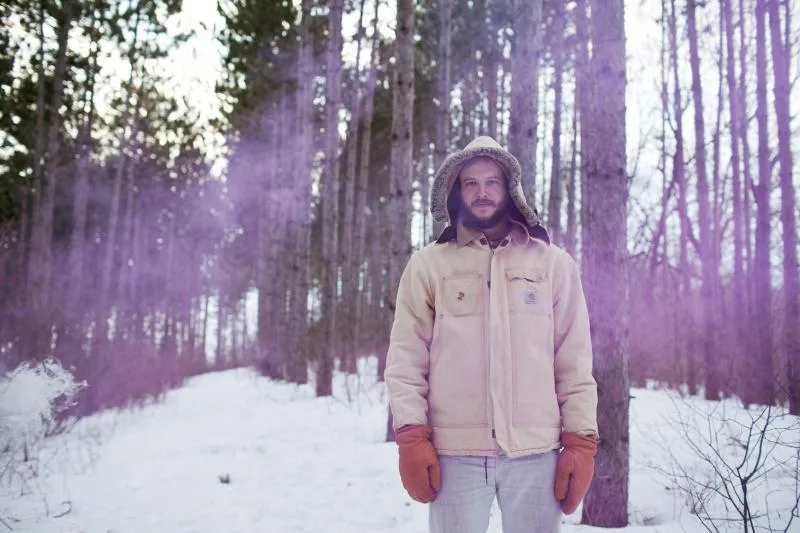
(Image via Shutterstock)
A Brown County man convicted of disorderly conduct during a domestic incident can get a gun permit, but Justice Jill Karofsky said lawmakers ought to consider options to prevent abusers from having easy access to firearms.
More than a decade after it passed, Wisconsin’s concealed carry gun law continues to have a huge, dangerous loophole that allows domestic abusers and even career criminals to get a gun permit, according to a progressive Wisconsin Supreme Court justice who reluctantly joined in a unanimous ruling Friday that restored a Brown County man’s ability to get a permit.
The verdict overturned a lower court’s ruling regarding a man whose license was revoked due to a 1993 conviction related to domestic violence. But because his conviction was for disorderly conduct—something that’s not explicitly linked to domestic violence in the state law regulating gun permits— his misdemeanor conviction does not disqualify him from getting a license to carry a concealed weapon in public.
The judges ruled unanimously due to the way the law is currently written, but Justice Jill Karofsky wrote a separate, concurring opinion that called on the Legislature to close the “nonsensical” and “dangerous loophole” that remains a part of the 2011 law passed when Republicans took control of the Assembly, Senate, and governor’s office.
Karofsky gave the Legislature three different ways to close the loophole. Lawmakers could write a criminal statute for “threatened battery with a deadly weapon,” In the 1993 case, Daniel Doubek broke into the home of his estranged wife, raised a 2×4 piece of lumber over his head, and threatened to kill her. If the legislature added such a statute, it would prevent individuals like Doubek from being eligible for a gun permit.
Another option would be to criminalize domestic abuse itself as a standalone misdemeanor, rather than relying on criminalizing the particular actions such as disorderly conduct. Or, lawmakers could give courts more leeway to determine on their own if an act constitutes domestic violence.
Lawmakers have known about flaws in the law since it was originally passed, but have resisted making changes for fear of appearing “soft on crime,” even though Karofsky notes that a domestic abuse victim is five times more likely to be killed by her abuser when the abuser has access to a gun.
“Every month in this country, an average of 70 women lose their lives to a domestic abuse perpetrator using a gun,” Karofsky said. “Over half of all male-perpetrated femicides related to domestic abuse are the result of a firearm.”
In 2017, then-Chief Ed Flynn of the Milwaukee Police Dept. tore into lawmakers for not matching the concealed carry requirements to already-existing state statutes that define a career criminal as someone who has been convicted of three misdemeanors or one felony within five years. The concealed carry law says only people convicted of felonies are prohibited from licenses, even though many criminals charged with felonies agree to plead guilty to misdemeanors in order to avoid a trial.
“So I’ve got armed, career criminals with concealed permits guarding drug dealers,” Flynn said. “We call ‘em human holsters. They’re sitting in a car with three felons and they’re carrying three guns. That’s a crazy law.”
Flynn said such a “cockamamie law” has flooded the state with guns that then fall into the hands of immature young offenders.
“Stupid disputes that would have been fistfights are now shootings. Facebook fights are now shootings. Road rages are now shootings. It’s an irresponsible law passed by irresponsible legislators. That’s what’s driving the violence,” Flynn said five years ago.
The Associated Press contributed to this story.
Politics

New Biden rule protects privacy of women seeking abortions
Under the new rules, state officials and law enforcement cannot obtain medical records related to lawful reproductive health care with the goal of...

Biden marks Earth Day by announcing $7 billion in solar grants
The Biden administration on Monday announced the recipients of its Solar For All Program, a $7 billion climate program that aims to lower energy...
Local News

Stop and smell these native Wisconsin flowers this Earth Day
Spring has sprung — and here in Wisconsin, the signs are everywhere! From warmer weather and longer days to birds returning to your backyard trees....

Your guide to the 2024 Blue Ox Music Festival in Eau Claire
Eau Claire and art go hand in hand. The city is home to a multitude of sculptures, murals, and music events — including several annual showcases,...





